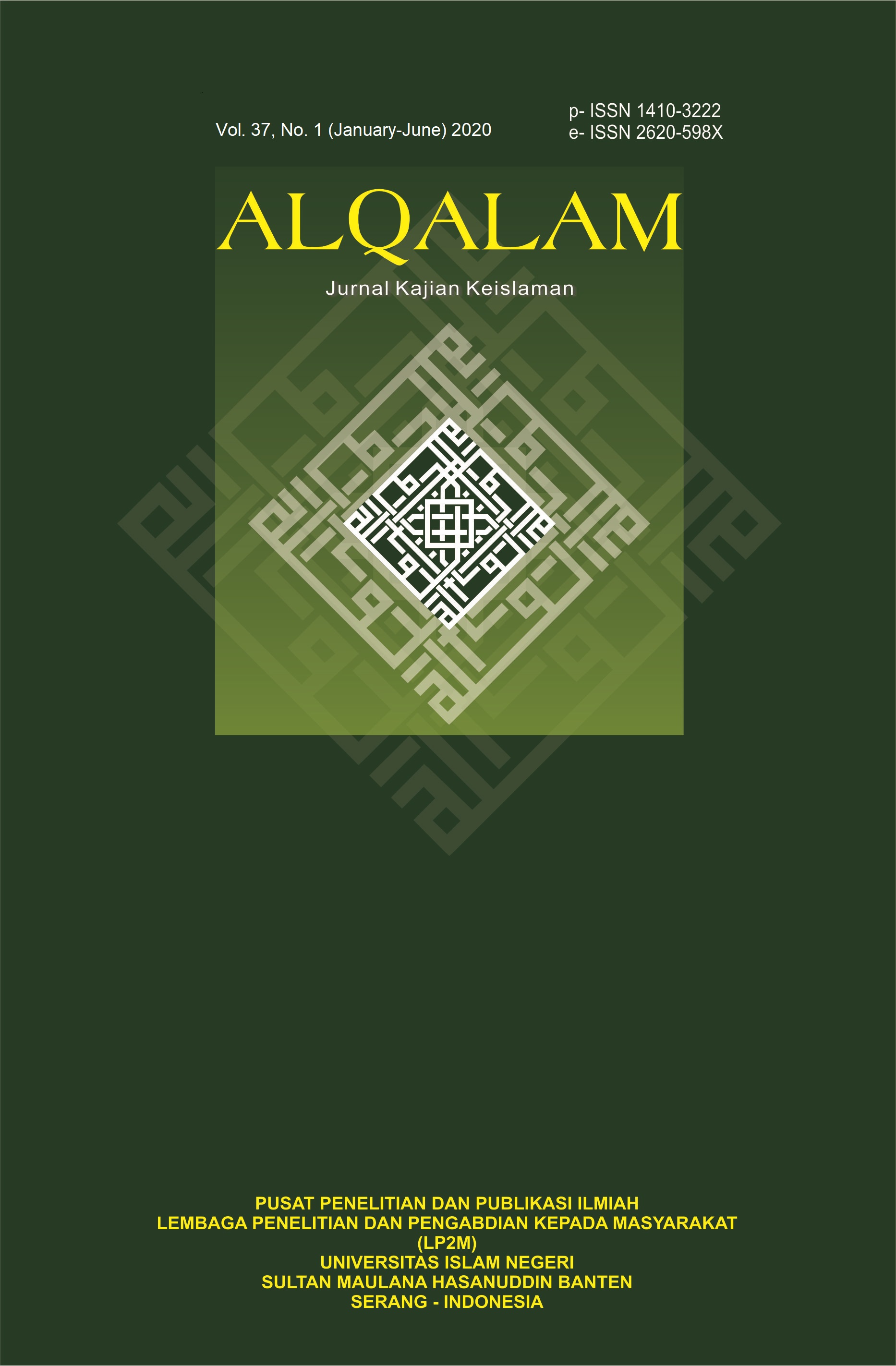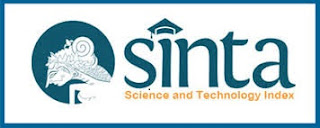Child-Friendly School Policy in the Perspective of Islamic Education Teachers in Indonesia
DOI:
https://doi.org/10.32678/alqalam.v39i1.5732Keywords:
Islamic education teachers, Indonesia, child-friendly school policyAbstract
Abstract:
Along with some violations of children’s rights in the education unit, the policy of child-friendly schools is a new paradigm for the development of children’s rights-based education units. This study aims to identify the perceptions of Islamic education teachers in the education unit towards child-friendly school policies. This study employed a qualitative approach. The study involved the Islamic education teachers in 3 (three) provinces: DKI Jakarta, West Java and Banten, from August to December 2021. The respondents were the Islamic education teachers of elementary, junior high and high school levels. There were 120 Islamic education teachers. This study took the sample randomly. Moreover, the data were collected through virtual interviews through the zoom platform, distributing questionnaires via google forms and document studies. Then, the data were analyzed descriptively. This study shows that 85% of Islamic education teachers positively view the quality of child-friendly school policies. Furthermore, 72% of teachers view that the content of child-friendly school policies can be extinguished, then 75% of teachers argue that child-friendly school policies are relevant to the need for improving the education service system, then 86% of teachers see that child-friendly school policies have benefits for school culture improvement. Then, 87% of teachers view that it will positively impact the comfort of school personnel.
Keywords: Islamic education teachers, Indonesia, child-friendly school policy
Downloads
References
Arwildayanto, K. A. (2020). Implementasi Program Sekolah Ramah Anak Pada Sekolah Menengah Atas. Jurnal Administrasi Pendidikan, 27(1), 170–183.
Cahen, A., & Tacca, M. C. (2013). Linking Perception and Cognition. Frontiers in Psychology, 4, 144.
Confeld, S. (2016). The Importance of a Positive School Culture. A Master’s Project Presented to The Faculty of Adler Graduate School.
Godfrey, E. B., Osher, D., Williams, L. D., Wolf, S., Berg, J. K., Torrente, C., Spier, E., & Aber, J. L. (2012). Cross-National Measurement of School Learning Environments: Creating Indicators for Evaluating UNICEF’s Child Friendly Schools Initiative. Children and Youth Services Review, 34(3), 546–557.
Government of Republic of Indonesia. (n.d.). Law on the National Education System (No. 20/2003).
Hanurawan, F. (2010). Psikologi Sosial: Suatu Pengantar. Rosda.
Hornby, G. (2021). Are Inclusive Education or Special Education Programs More Likely to Result in Inclusion Post-School? In Education Sciences (Vol. 11, Issue 6, pp. 304–304). MDPI AG. https://doi.org/10.3390/educsci11060304
Indraswati, D., Widodo, A., Rahmatih, A. N., Maulyda, M. A., & Erfan, M. (2020). Implementasi Sekolah Ramah Anak dan Keluarga di SDN 2 Hegarsari, SDN Kaligintung, dan SDN 1 Sangkawana. JKKP (Jurnal Kesejahteraan Keluarga Dan Pendidikan), 7(01), 51–62.
Minister of Education and Culture of the Republic of Indonesia. (n.d.). Minister of Education and Culture (MoEC) Regulation No. 82/2015 on Prevention and Overcoming of Violence in Education Units.
Nyberg, A., Ferm, U., & Bornman, J. (2021). School-Based Abuse Prevention Programs for Children: A Scoping Review. International Journal of Disability, Development and Education, 1–19.
Obaki, S. O. (2017). Impact of Classroom Environment on Children’s Social Behavior. International Journal of Education and Practice, 5(1), 1–7.
Qiong, O. U. (2017). A Brief Introduction to Perception. Studies in Literature and Language, 15(4), 18–28.
Rusmayadi, H. (2019). Journal of Educational Science and Technology. Journal of Educational Science and Technology, 5(2), 159–165.
Saptono, B. (2022). Implications of Child-Friendly School Policies in Reducing Cases of Violence against Children in Primary Schools. Jurnal Prima Edukasia, 10(1), 96–103.
Schmitz, T. W., De Rosa, E., & Anderson, A. K. (2009). Opposing Influences of Affective State Valence on Visual Cortical Encoding. Journal of Neuroscience, 29(22), 7199–7207.
Siahaan, A., Hidayat, R., & Rustam, R. (2019). Manajemen Lembaga Pendidikan Islam: Menuju Lembaga Pendidikan Unggul, Kompetitif Dan Bermutu.
Sugiyono. (2017). Metode Penelitian Kuantitatif, Kualitatif, dan R&D. Alfabeta.
Suharjuddin, S., & Markum, M. (2021). Child-Friendly School Policy with Children’s Rights Approach in Bekasi City. Jurnal Studi Guru Dan Pembelajaran, 4(2), 387–397.
Tapia-Fonllem, C., Fraijo-Sing, B., Corral-Verdugo, V., Garza-Terán, G., & Moreno-Barahona, M. (2020). School Environments and Elementary School Children’s Well-Being in Northwestern Mexico. Frontiers in Psychology, 11, 510.
Wuryandani, W., Faturrohman, F., Senen, A., & Haryani, H. (2018). Implementasi Pemenuhan Hak Anak Melalui Sekolah Ramah Anak. Jurnal Civics: Media Kajian Kewarganegaraan, 15(1), 86–94.














